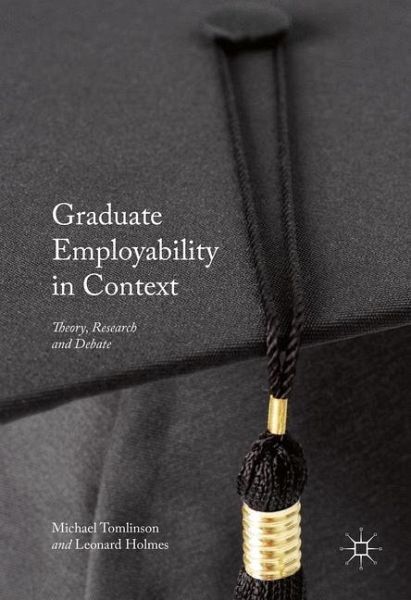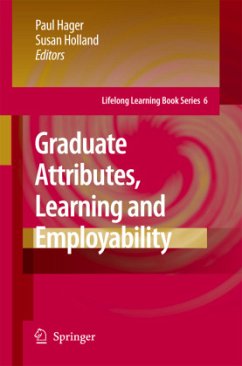
Graduate Employability in Context
Theory, Research and Debate
Herausgegeben: Tomlinson, Michael; Holmes, Leonard

PAYBACK Punkte
57 °P sammeln!
This book explores the highly significant and contested area of graduate employability and employment which is paid so much attention by those in the media and policy-makers. This is driven largely by concerns over the wider economic impact and value of graduates as increasing numbers complete their studies in higher education. At a time when graduates are seen as key to economic success, the critical question remains as to how their employability plays out in a changing labour market. This book brings together innovative approaches and research to present an extensive survey of the field. It ...
This book explores the highly significant and contested area of graduate employability and employment which is paid so much attention by those in the media and policy-makers. This is driven largely by concerns over the wider economic impact and value of graduates as increasing numbers complete their studies in higher education. At a time when graduates are seen as key to economic success, the critical question remains as to how their employability plays out in a changing labour market. This book brings together innovative approaches and research to present an extensive survey of the field. It provides insight on what is a complex and often elusive social and economic problem, ranging from how graduate employability is constructed as an economic and policy agenda to explorations of how graduates manage the transition from higher education to paid employment and finally to suggest future directions for curricula, policy and research.












